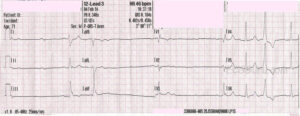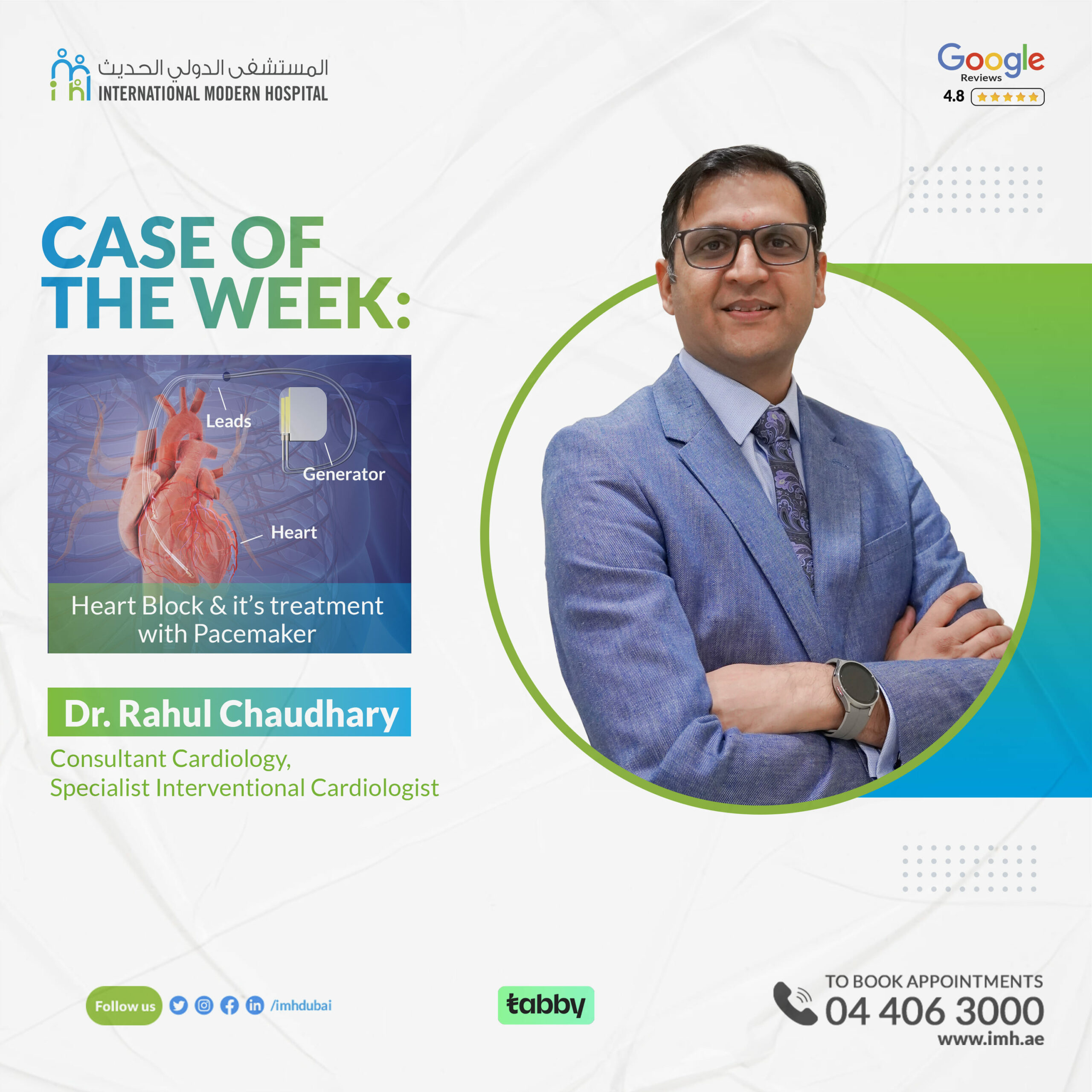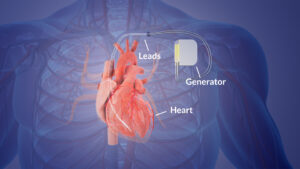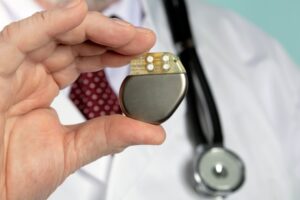16 Feb 2024
Dr. Rahul Chaudhary
Consultant Cardiology, Specialist Interventional Cardiologist
Visit Profile
Book Appointment
CASE SUMMARY
A 41 year-old gentleman with no known comorbidities had presented to our emergency with history of giddiness, dizziness and multiple episodes of recurrent transient loss of consciousness also known as syncope. He had never had similar episodes before and attributed these episodes the fasting that he has been doing in the last 1 week. On clinical examination, he was found to have a pulse of 34 bpm and the rest of the parameters were within normal limits. The ECG done in the emergency at his presentation was suggestive of a high grade AV block, which was picked up by our Emergency Specialist Dr. Sona Ram Jatt. The patient was immediately admitted for temporary followed by permanent pacemaker implantation, which in these cases is lifesaving. After appropriate evaluation and laboratory investigation, patient underwent the procedure under local anesthesia and was subsequently discharged after 2days of hospital stay.
DISCUSSION | HEART BLOCK AND ITS TREATMENT WITH PACEMAKER
TYPES O F HEART BLOCK
There are 3 types Based on the degree of delay/interruption in the transmission of electrical signal – First, second and third degree heart block
WHAT ARE THE SYMPTOMS OF HEART BLOCK?
Although a few of the patients with heart block may not have any symptoms, others usually present with the following
- Fainting (syncope – transient loss of consciousness)
- Dizziness
- Light headedness
- Sudden Black out
- Decline in exercise capacity and easy fatigue ability
WHAT INVESTIGATION WE USUALLY DO FOR A PATIENT WITH HEART BLOCK ?
The simplest of the investigation, an ECG can diagnose your heart block. However other investigation like Holter Monitoring (where in your hearts electrical activity is continuously recorded in a small Holter machine for 1- 7 days or longer), may be needed to document episodes of heart block that occur intermittently. Some Blood investigations may be ordered to find out the cause. And one may also be required to undergo coronary angiography to look for acute coronary syndrome as a cause of Heart Block.

IS THERE ANY TREATMENT FOR SYMPTOMATIC HEART BLOCK?
You will be surprised to know that the advances in medical science has made treatment of symptomatic heart block so easy with the availability of “small wonders” – a k/a PACEMAKERS which are hardly 25 – 30 grams in weight. Can you beat that!! This device is implanted underneath the skin below you collar bone under local anesthesia. We at international Modern Hospital implanted a Dual Chamber MRI Compatible Pacemaker for this patient. The pacemaker is programmed to increase your heart rate based on your activity as well as just sit as a bystander whenever your hearts own rhythm is predominant.
CAN YOU GET BACK TO NORMAL LIFE AFTER IMPLANTATION OF PACEMAKER?
Absolutely, that is the sole purpose of pacemaker implantation – to get you rid of the symptoms occurring due to heart block.
The issue with heart block cases like these are
- The clinical presentation is often overlooked and underestimated as being due to lack of food, lack of sleep, postural giddiness, fatigue, tiredness – as a result of which the patient often doesn’t visit the doctor until they actually have an episode of loss of consciousness.
- Loss of consciousness due to cardiac cause is usually transient with recovery (syncope), but fi that episode occurs when you are in a dangerous scenario like crossing the road, near a fire, driving etc. then that can be fatal.
- The fact that intermittent heart blocks are often missed on routine ECG (hence the need for prolonged ECG monitoring – sometime up to months) and when the patient present in between the episode his or her ECG can be absolutely normal giving a false sense of security to the patient.
- The echocardiography can be normal in a patient with heart block as heart block is a disease of conduction system of the heart.
- One has to be very vigilant in evaluating any patient with giddiness, dizziness or transient blackout – most of these patient go to neurologist – and ECG is something that should be done mandatorily for such patient with suspected syncope.


